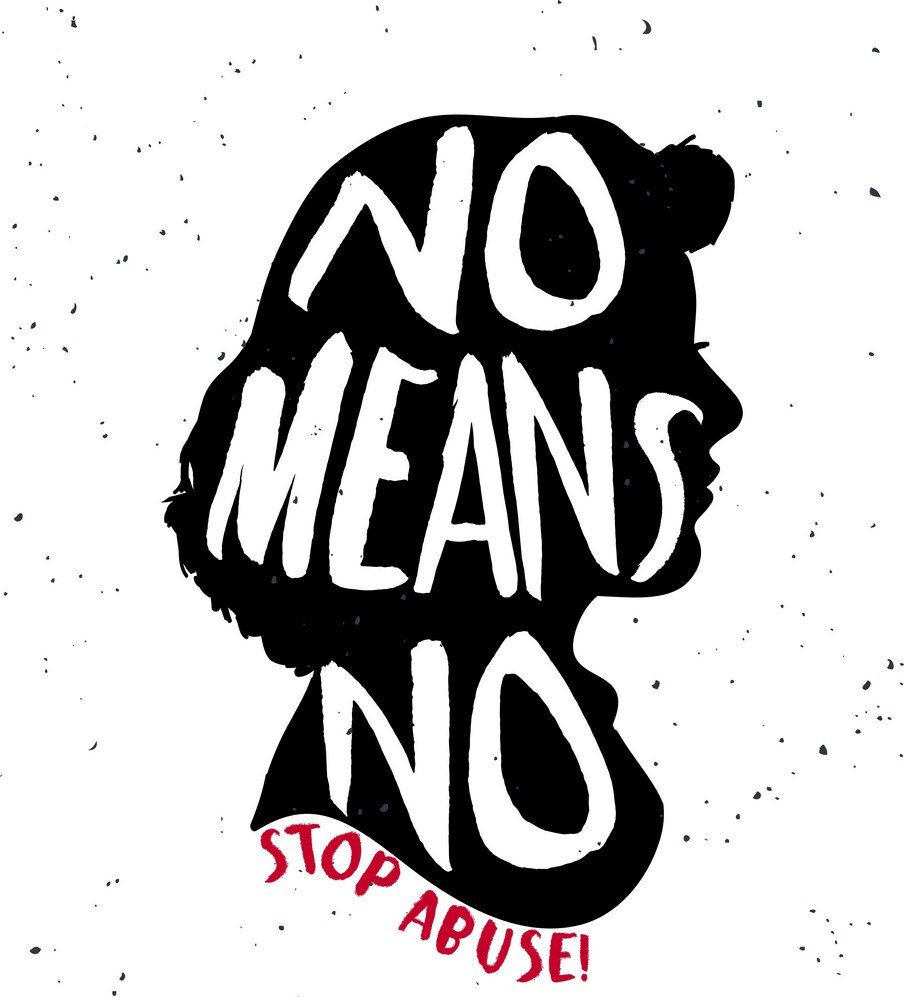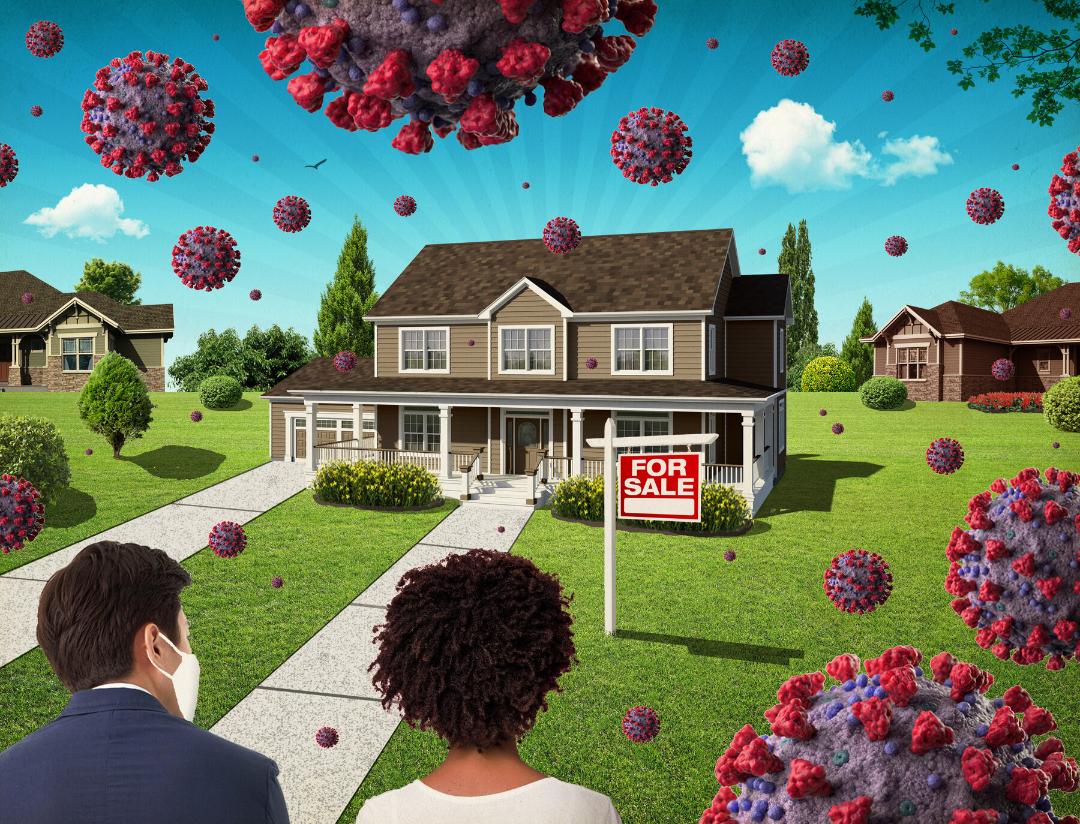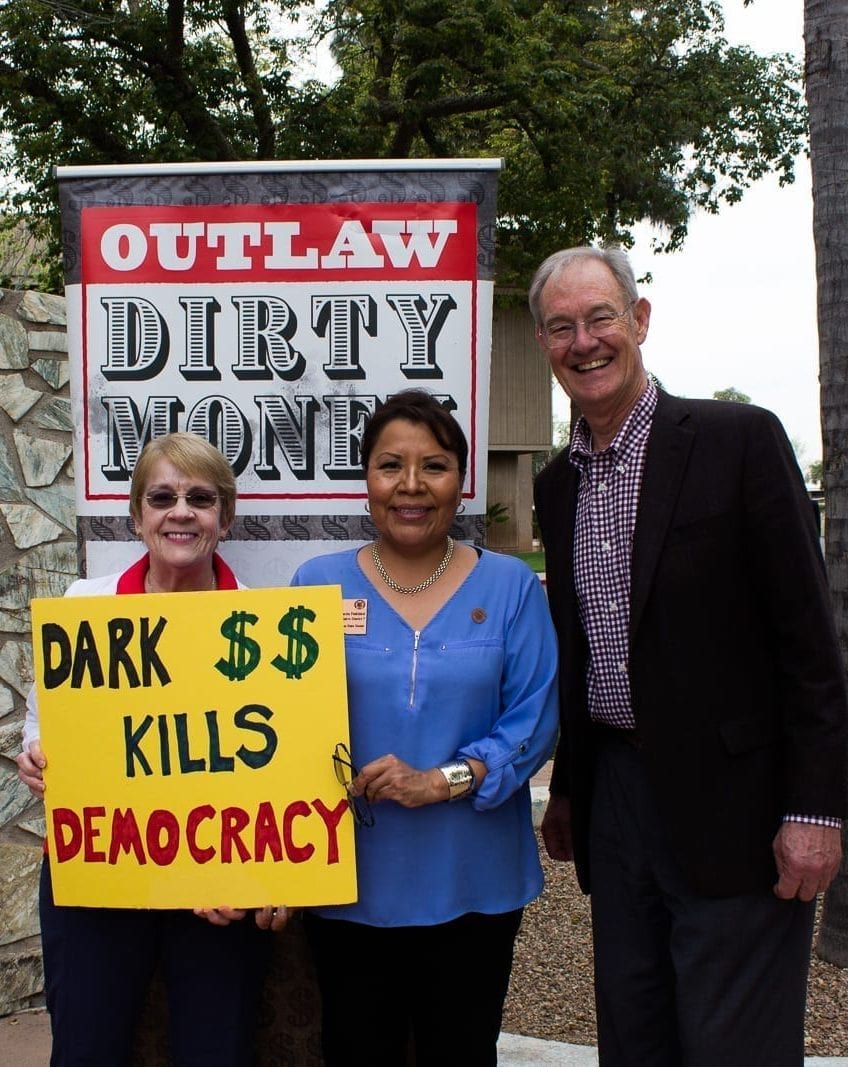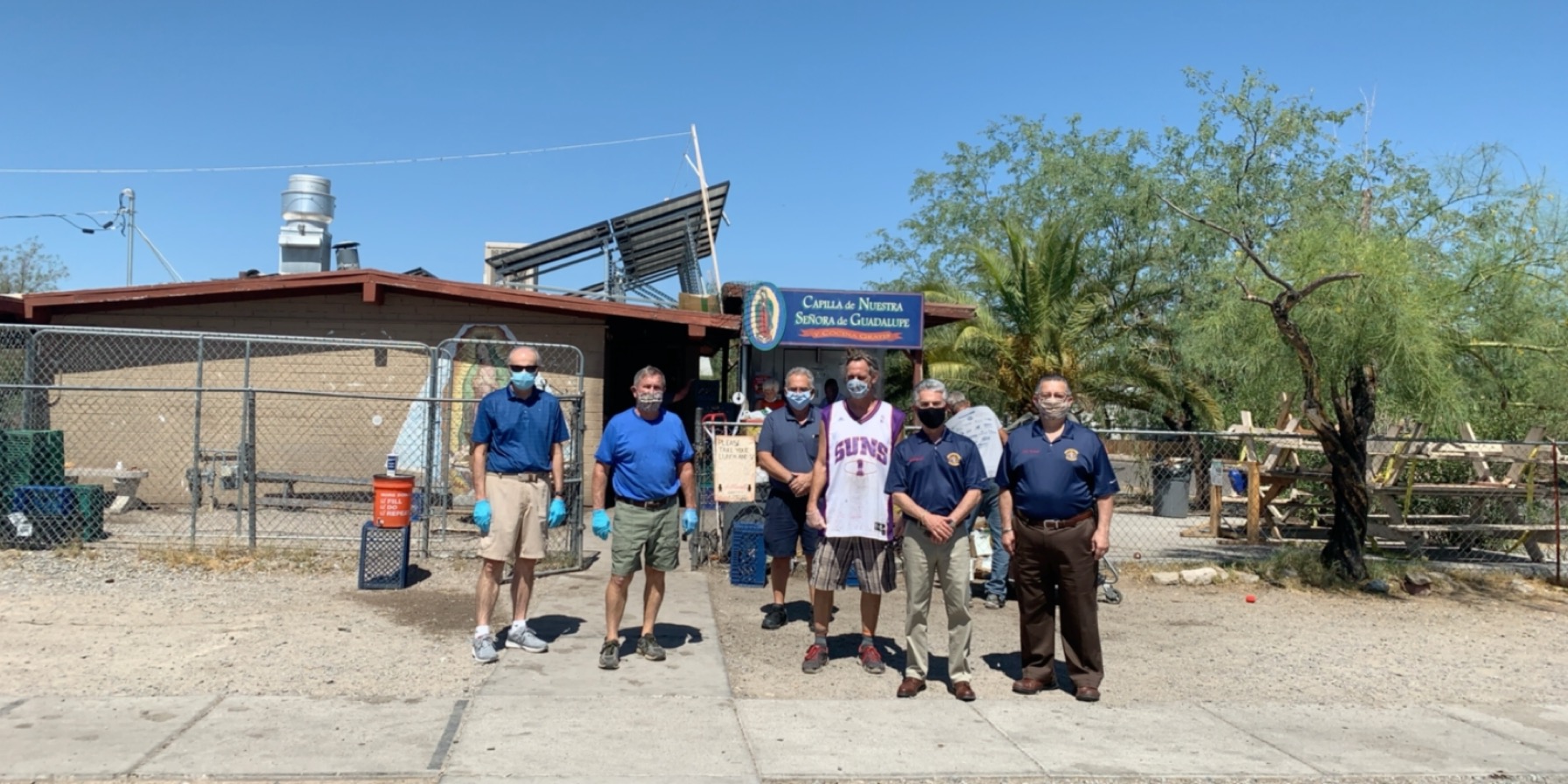
by Gene Martinez
This is a story that belongs to the women of this community. As men we have a responsibility to use our privilege to show up and support women instead of continuing to dismiss and silence them. I have spoken to several women of the community and have received their consent to present their stories. I write this in order to provide a voice for the women who are not heard.
Since early June, young women in Tucson have been speaking out about sexual violence on Twitter. While some users have been sharing their personal stories, others have been compiling lists of names and social media accounts of young local men who have been accused of sexual violence by women who wish to remain anonymous.
“I started the account because of a Twitter user, @savannahelisse – she posted a list of abusers in Tucson,” Twitter user @520TucsonAbusers said.
@savannahelisse was encouraging women to share their stories and the names of their abusers that she would then later post. Despite receiving an overwhelming influx of names, she was forced to stop posting after receiving several threats.
“She received so many death threats and threats to her family that she had to take the lists down,” 520TucsonAbusers said.
@520TucsonAbusers luckily picked up where many women on twitter were forced to leave off. The account manager still encourages women to share their experiences, and posts consistently.
“This page is important,” @520TucsonAbusers explained, “no one discusses the topic.”
Sexual violence (SV) is a major public health problem in the U.S. SV refers to any form of sexual activity when consent is breached, not obtained, or not given freely.
Sexual Violence includes the following:
- Rape
- Forcible sodomy – anal or oral sex against a person’s will
- Forcible object penetration
- Marital Rape
- Unwanted sexual touching
- Sexual contact with minors
- Incest
- Any unwanted or coerced sexual contact
According to the National Intimate Partner and Sexual Violence Survey (NISVS), 1 in 2 women (43.9%) in the U.S reported experiencing at least 1 episode of sexual violence other than rape in her life and 1 in 5 (19.3%) women have been raped at least once in their lifetime.
Sexual violence must be understood and recognized as a facet of the patriarchy. In a patriarchy, men hold primary power and roles of political leadership, moral authority, and social privilege.
In the U.S, men have always held power. They disproportionately occupy positions of authority and determine societal norms and values. As a result, these norms and values are defined by dominance and control.
In a patriarchy, women’s opportunities to participate in different aspects of society are severely limited. These limitations are rooted in men ideas about male superiority and in turn relegate women to a second-class status.
The degradation and dehumanization of women in the U.S, has consequently left them highly susceptible to sexual violence.
Although sexual violence can impact all people, according to the National Sexual Violence Resource Center, 91% of victims of sexual violence are female and the person responsible for the violence is typically male (99%).
At its core, sexual violence is about the assertion of male power over women.
The idea of sexual assault to the general public can be misguided. A lot of times we imagine a shadowy figure jumping out of the bushes and pinning a girl down against her will (this is also too common). SV however takes place among normal people who are familiar with each other and are involved in some type of relationship.
According to Rape, Abuse, and Incest National Network (RAINN), of sexual violence cases reported to the police, 93% of victims knew the perpetrator and 80% of rape are committed by someone known to the victim.
“The reality [is] sleeping with a girl who is too drunk to function, or holding something over a girl’s head in order to have sex. Like not taking her home until she sleeps with them, or [threatening] to send her nudes around,” @520TucsonAbusers said.
The women in Tucson who spoke out, recounted stories where they were raped while they were passed out. Others described times where they were pressured, directly and others times indirectly into some type of sexual activity. Some women even shared their stories of being beaten, taken and raped.
The accused abusers listed are young men of the community.
“The only reason I post names is to warn the people in the community who to be wary of,” @520TucsonAbusers said, “It is my first amendment right to express my concern of men who have multiple women come forward accusing them of assault.”
In a time where the inequities of this country are on full display, we must discuss the disparities among women and how to combat them.
“I will always be here for women to confide in. Even if the stream of names slows down, I will continue to post those that are sent to me. I think that these accounts have provided a great service to the victims of assault and given them a place to express their feelings around their trauma,” 520TucsonAbusers said.
We must look critically at our current system, our social values and the culture we have created that has left women in the status they’re in. Here at Casa Maria, we believe in the works of mercy and the works of justice. Justice especially for those who are oppressed and marginalized. We believe in a moral vision of a just, inclusive society that advances the emancipation of women from the destructive system of patriarchy.
Statement from Chucho Vai Sevoi
I wanted to offer a definition of male sexual violence from the organization Men Stopping Violence (MSV) and their educational and accountability program called Men At Work: Building Safe Communities. The definition is as follows: Male expectation of sex acts combined with tactics to compel submission. –MSV
I feel that if we as men all pause for a minute and process this definition, we can think and feel a deeper sense of complicity in male sexual violence against women. I know I have gone and continue to go through the process of being socialized as a man with very rigid ideas and beliefs of manhood, these beliefs have often in my life made me feel entitled to women’s bodies. These beliefs have also lead to behaviors and tactics where I have perpetuated harm, abuse and violence against women in my life. Unlearning these beliefs, being accountable for harm I’ve caused, and working towards restoring justice and healing is work I must continue to strive for as a man and do this work with other men. I have hope in this work, and I know there is an urgency in this work. As a man I cannot and will not distance myself from the impact of male sexual violence against women. I feel that with my male privilege I have a responsibility to create healthier and safer spaces for all women, girls and other marginalized peoples.
Statement from Gabby Daines
In my life, I’ve seen the growing disparities between gender roles. As a woman, individuals are expected to behave in a polite and tame manner. We’re subjected to the demeaning values of society and patriarchy. In this world where speaking up feels like giving up, it’s become impossible to get ahead. Rape culture is so deeply ingrained in the fibers of our social construct, that it enables the systemic oppression of women like me. The need for change is now. The need for an active discussion surrounding society’s toxic norms, the need to educate, to enforce the inalienable rights of humanity, and to promote peace and success for all individuals regardless of their gender.
En Español:
Esta es una historia que pertenece a las mujeres de esta comunidad. Como hombres, tenemos la responsabilidad de utilizar nuestro privilegio para apoyar a las mujeres, en vez de rechazar y silenciarlas. He hablado con varias mujeres de la comunidad y me han dado su consentimiento para presentar sus historias. Escribo esto como un medio para que las voces de estas mujeres sean escuchadas.
Desde el principio de Junio, algunas mujeres jóvenes de Tucson, han estado hablando, en Twitter, de las violencia sexual. Mientras que algunos usuarios han estado compartiendo sus historias personales, otros han estado compilando listas de nombres y cuentas de redes sociales de hombres jóvenes locales que han sido acusados de violencia sexual por mujeres que desean permanecer en el anónimas.
“Abrí la cuenta porque un usuario de Twitter, @savannahelisse, publicó una lista de abusadores en Tucson”, dijo el usuario de Twitter @ 520TucsonAbusers.
@savannahelisse estaba alentando a las mujeres a compartir sus historias y los nombres de sus abusadores para publicar su lista. A pesar de recibir una cantidad abrumadora de nombres, se sintió obligada a dejar de publicar después de recibir varias amenazas.
“Recibió tantas amenazas de muerte y amenazas contra su familia que tuvo que quitar las listas”, dijo 520TucsonAbusers.
@ 520TucsonAbusers afortunadamente recogió donde muchas mujeres en Twitter se vieron obligadas a dejarlo. El gerente de cuentas todavía alienta a las mujeres a compartir sus experiencias y publica las constantemente.
“Esta página es importante”, explicó @ 520TucsonAbusers, “nadie platica del tema”.
La violencia sexual (VS) es un problema de salud pública en los EE. UU. VS se refiere a cualquier forma de actividad sexual en la qual se infringe el consentimiento, no se obtiene o no se da libremente.
La violencia sexual incluye lo siguiente:
- Violación
- Sodomía forzada – sexo anal u oral contra la voluntad de una persona
- Penetración de objetos por fuerza
- Violación matrimonial
- Toques sexuales no deseados
- Contacto sexual con menores
- Incesto
- Cualquier contacto sexual no deseado o forzado
Según la Encuesta nacional de violencia sexual y de pareja (NISVS), 1 de cada 2 mujeres (43.9%) en los EE. UU. Informó haber experimentada al menos 1 episodio de violencia sexual que no sea violación en su vida y 1 de cada 5 (19.3%) las mujeres tienen haber sido violadas al menos una vez en su vida.
La violencia sexual debe entenderse y reconocerse como una faceta del patriarcado. En un patriarcado, los hombres tienen el poder principal y los roles de liderazgo político, autoridad moral y privilegio social.
En los Estados Unidos, los hombres siempre han tenido el poder. Ocupan desproporcionadamente puestos de autoridad y determinan normas y valores sociales. Como resultado, estas normas y valores están definidos por el dominio y el control.
En un patriarcado, las oportunidades de las mujeres para participar en diferentes aspectos de la sociedad son limitadas. Estas limitaciones se basan en los puntos de vista que los hombres crean sobre la superioridad masculina y, por lo tanto, relegan a las mujeres a un estado de segunda clase.
La degradación y la deshumanización de las mujeres en los Estados Unidos las ha dejado altamente susceptibles a la violencia sexual.
Aunque la violencia sexual puede afectar a todas las personas, según el Centro Nacional de Recursos para la Violencia Sexual, el 91% de las víctimas de violencia sexual son mujeres y la persona responsable de la violencia es típicamente hombre (99%).
En esencia, la violencia sexual se trata de la afirmación del poder masculino sobre las mujeres.
La idea de agresión sexual al público suele ser errónea. Muchas veces imaginamos una figura sombría saltando de los arbustos y atrapando a una niña contra su voluntad (esto también es demasiado común). Sin embargo, VS tiene lugar entre personas normales que se conozen y están involucradas en algún tipo de relación.
Según la Red Nacional de Violación, Abuso e Incesto (RAINN), de casos de violencia sexual denunciados a la policía, el 93% de las víctimas conocían al autor y el 80% de las violaciones son cometidas por alguien conocido por la víctima.
“La realidad [es] dormir con una chica que está demasiado borracha para funcionar, o sostener algo sobre la cabeza de una chica para tener relaciones sexuales. Como no llevarla a casa hasta que duerma con ellos, o [amenazar] con enviarle desnudos “, dijo @ 520TucsonAbusers.
Las mujeres en Tucson que hablaron, relataron historias donde fueron violadas mientras se desmayaban. Otros describieron momentos en que fueron presionadas, directamente y otras indirectamente en algún tipo de actividad sexual. Algunas mujeres incluso compartieron sus historias de ser golpeadas, secuestradas y violadas. Los acusados de abuso son hombres jóvenes de la comunidad.
“La única razón por la que publicó nombres es para advertir a las personas de la comunidad de quienes deben ser cautelosos”, dijo @ 520TucsonAbusers, “Es mi derecho de la primera enmienda expresar mi preocupación de los hombres que tienen múltiples mujeres que los acusan de asalto”.
En una época en que las desigualdades de este país están en plena exhibición, debemos discutir las disparidades entre las mujeres y cómo combatirlas.
“Siempre estaré aquí para que las mujeres confíen en mí. Incluso, si el flujo de nombres se ralentiza, continuaré publicando los que me envían. Creo que estas cuentas han brindado un gran servicio a las víctimas de asalto y les han dado un lugar para expresar sus sentimientos en torno a su trauma”, dijo 520TucsonAbusers.
Debemos de ver críticamente a nuestro sistema actual, nuestros valores sociales y la cultura que hemos creado que ha dejado a las mujeres en el estado en que se encuentran. Aquí, en Casa María, creemos en las obras de misericordia y las obras de justicia. Justicia especialmente para los oprimidos y marginados. Creemos en una visión moral de una sociedad justa e inclusiva que promueva la emancipación de las mujeres del sistema destructivo de un patriarcado.
Statement de Chucho Vai Sevoi
Quería ofrecer una definición de violencia sexual masculina de la organización Men Stopping Violence (MSV) y su programa educativo y de responsabilidad llamado Men At Work: Building Safe Communities. La definición es la siguiente: expectativa masculina de actos sexuales combinados con tácticas para obligar a la sumisión. –MSV Siento que, si todos los hombres hacemos una pausa por un minuto y procesamos esta definición, podemos pensar y sentir una complicidad más profunda en la violencia sexual masculina contra las mujeres. Sé que he pasado y sigo pasando por el proceso de ser socializado como un hombre con ideas muy rígidas y creencias de virilidad, estas creencias a menudo en mi vida me han hecho sentir derecho a los cuerpos de las mujeres. Estas creencias también han llevado a comportamientos y tácticas donde he perpetuado el daño, el abuso y la violencia contra las mujeres en mi vida. Desaprender estas creencias, ser responsable del daño que he causado y trabajar para restaurar la justicia y la curación es un trabajo que debo seguir luchando como hombre y hacer este trabajo con otros hombres. Tengo esperanza en este trabajo, y sé que hay una urgencia en este trabajo. Como hombre, no puedo ni me distanciaré del impacto de la violencia sexual masculina contra las mujeres. Siento que con mi privilegio masculino tengo la responsabilidad de crear espacios más saludables y seguros para todas las mujeres, niñas y otros pueblos marginados.
Statement from Gabby Daines
En mi vida, he visto las disparidades crecer entre los papeles de género. Como mujer, se espera que las personas se comporten de manera educada y mansa. Estamos sujetos a los valores degradantes de la sociedad y el patriarcado. En este mundo donde hablar se siente como darse por vencido, es imposible salir adelante. La cultura de la violación está tan profundamente arraigada en las fibras de nuestra construcción social, que permite la opresión sistémica de mujeres como yo. La necesidad de cambio es ahora. La necesidad de una discusión activa en torno a las normas tóxicas de la sociedad, la necesidad de educar, hacer cumplir los derechos inalienables de la humanidad y promover la paz y el éxito para todas las personas, independientemente de su género.











